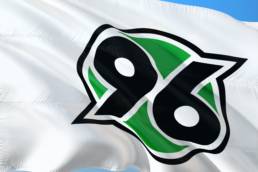As the centrepiece of Dutch elite sport, TeamNL unites 29 national sport federations. A TWIN Master Class now served the organisation to train their practitioners in the area of athlete transition support.
While secondary and higher education dominate the European dual career discourse, work-sport solutions and the professional support of athletes’ transition into post-athletic life have yet remained subordinate topics. Fortunately, there are exceptions to be found.
TeamNL@work
The labour market programme TeamNL@work is implemented by the Olympic Committee*National Sports Federation of the Netherlands (NOC*NSF) in cooperation with the partner institutions Stichting Sporttop, de SportMaatschappij, UWV, and Fanbased Foundation. CPD is an integral part of the programme. This week, TWIN conducted a customized staff training for TeamNL@work in the Dutch National Sports Centre of Papendal.
Athlete transition support in the making
Organisations represent social systems. Such systems are composed of complex interactive communication processes. Their programme performance (here: in the context of athlete transition support) requires the ability to understand the interplay of these processes. In this regard, leaving well-known sporting grounds can be beneficial.
In module 1, our TWIN Master Class therefore introduced the TeamNL@work staff to system-theoretical and philosophical considerations of Niklas Luhmann, Søren Kierkegaard, or Martin Buber. This served as the beginning foundation for the following two workshop modules.
Module 2 then assisted the TeamNL@work practitioners to analyse the communicative and structural nature of work-sport solutions, using the following guiding questions:
- What is the motivation of organisations to consider elite sport-friendly workplaces?
- What is required from a company to include active elite athletes in their staff pool?
- How can inclusion conditions within the labour organisation be adapted, so that the work performance of athletes becomes connectable to both the logic of business, as well as to the logic of elite sport?
Module 3 finally addressed the personal dynamics of athletic retirement from an athlete’s perspective, and linked, effective transition support. What took center stage in this section, was how to shift the programmatic focus from a short-term reactive approach towards a long-term proactive preparation of an inevitable transition. The extensive experience gathered in TWIN’s athlete support service, served to draw practical conclusions for the TeamNL@NL programme, as well as for the daily work of practitioners.
•
•
•




